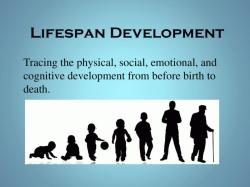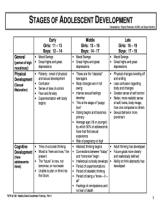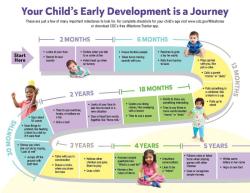What are the similarities between nature and nurture?
Nature and nurture are two influential factors that contribute to the development of individuals. While they represent different aspects of human development, there are some similarities and areas of interplay between nature and nurture:
Influence on Development:
- Both nature and nurture play significant roles in shaping an individual's development. Nature refers to genetic or inherited factors, while nurture refers to environmental and experiential influences.
Interaction and Complexity:
- Nature and nurture interact in complex ways. Genes can influence how individuals respond to their environment, and experiences can, in turn, impact how genes are expressed. The interplay between genetic predispositions and environmental factors contributes to the complexity of human development.
Biological Foundations:
- Nature provides the biological foundations of development. Genetic factors determine traits such as eye color, height, and susceptibility to certain diseases. These inherent characteristics create a starting point for an individual's development.
Individual Differences:
- Both nature and nurture contribute to individual differences among people. Genetic variations lead to diversity in traits and abilities, while environmental influences such as upbringing, education, and cultural experiences contribute to differences in behavior and personality.
Health and Well-being:
- Genetic factors influence susceptibility to certain health conditions, but lifestyle choices and environmental factors also play a crucial role in determining overall health and well-being. For example, a genetic predisposition to heart disease may be influenced by lifestyle choices like diet and exercise.
Learning and Cognitive Development:
- Nature provides the brain's basic structure and capacities, while nurture influences cognitive development through experiences, education, and exposure to various stimuli. Both genetic predispositions and environmental factors contribute to learning and intelligence.
Behavioral Traits:
- Behavioral traits can be influenced by both genetic predispositions and environmental experiences. For example, a genetic predisposition for shyness may interact with environmental factors such as upbringing and social experiences to shape an individual's behavior.
Psychological Disorders:
- Mental health conditions often involve a combination of genetic and environmental factors. While there may be a genetic predisposition to certain disorders, environmental stressors and life experiences can trigger or exacerbate these conditions.
Epigenetics:
- Epigenetic processes illustrate the dynamic interplay between nature and nurture. Epigenetic changes can occur in response to environmental influences, affecting how genes are expressed without altering the underlying DNA sequence.
Developmental Plasticity:
- Both nature and nurture contribute to developmental plasticity, the capacity of individuals to adapt and change in response to their environment. This adaptability allows individuals to cope with a variety of conditions and challenges.
Recognizing the interdependence of nature and nurture is essential for understanding the holistic picture of human development. While genes provide a blueprint, environmental influences shape the expression of that genetic information, leading to the diverse and unique characteristics of individuals. The study of nature and nurture often involves examining how these factors interact and contribute to various aspects of human development and behavior.
- Shared influences between nature and nurture:
Nature and nurture, often perceived as opposing forces in human development, are intricately intertwined and exert a profound influence on shaping an individual's characteristics. Nature, encompassing an individual's genetic makeup, provides the blueprint for their physical traits, temperament, and predispositions. Nurture, on the other hand, encompasses the environmental factors that influence an individual's development, including their upbringing, education, social interactions, and life experiences.
The shared influences between nature and nurture are evident in various aspects of human development:
Physical traits: While genetic factors determine an individual's basic physical characteristics, environmental factors can also influence their expression. For instance, nutrition and exercise can significantly impact an individual's height, weight, and overall health.
Temperament: Temperament, an individual's innate behavioral tendencies, is influenced by both nature and nurture. Genetic predispositions play a role in shaping one's temperament, while early childhood experiences and interactions can also shape emotional regulation and social behavior.
Personality: Personality, the unique combination of traits that define an individual, is a complex product of nature and nurture. While genetic factors provide the foundation for personality traits, environmental factors, such as parenting styles, peer relationships, and cultural influences, shape the expression of these traits.
Cognitive abilities: Cognitive abilities, such as intelligence, memory, and problem-solving skills, are influenced by both genetic predispositions and environmental factors. While genes provide the potential for cognitive development, opportunities for learning, stimulation, and education significantly impact the realization of this potential.
- Complementary nature of nature and nurture:
Nature and nurture are not opposing forces but rather complementary factors that work together to shape an individual's personality. Nature provides the foundation for an individual's potential, while nurture nurtures and molds that potential into a unique expression.
Imagine a seed planted in the ground. The seed's genetic makeup determines its potential to grow into a specific type of plant. However, the seed's growth and development are dependent on environmental factors such as sunlight, water, and soil nutrients. Without these environmental factors, the seed's potential would remain unrealized.
Similarly, an individual's genetic makeup provides the potential for developing certain personality traits. However, the expression of these traits is nurtured and shaped by environmental factors. Positive early childhood experiences, supportive relationships, and enriching educational opportunities can foster the development of positive personality traits. Conversely, negative experiences, lack of stimulation, and exposure to adverse environments can hinder the development of these traits.
- Intersections of nature and nurture:
Nature and nurture interact in a dynamic and complex manner, and their effects often intersect in shaping an individual's characteristics.
One example is the concept of gene-environment correlation. This phenomenon suggests that individuals with certain genetic predispositions may seek out or be more susceptible to specific environmental experiences. For instance, a child with a genetic predisposition for extroversion may gravitate towards social activities and opportunities for interaction, further reinforcing their extroverted tendencies.
Another example is the concept of gene-environment interaction. This phenomenon suggests that the effects of certain genes may depend on the specific environmental context. For instance, a genetic predisposition for anxiety may manifest more strongly in an environment that is stressful or unpredictable.
Understanding the interplay between nature and nurture is crucial for comprehending human development and behavior. By recognizing the shared influences and complementary nature of these factors, we can gain a deeper appreciation for the complex interplay that shapes each individual's unique personality and characteristics.













